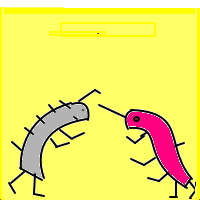On Sunday, March 30, I found him at home in the evening, and had the pleasure to meet with Dr. Brocklesby, whose reading, and knowledge of life, and good spirits, supply him with a never-failing source of conversation. He mentioned a respectable gentleman, who became extremely penurious near the close of his life.
Johnson said there must have been a degree of madness about him.
'Not at all, Sir, (said Dr. Brocklesby,) his judgement was entire.'
Unluckily, however, he mentioned that although he had a fortune of twenty-seven thousand pounds, he denied himself many comforts, from an apprehension that he could not afford them.
'Nay, Sir, (cried Johnson,) when the judgement is so disturbed that a man cannot count, that is pretty well.'
I shall here insert a few of Johnson's sayings, without the formality of dates, as they have no reference to any particular time or place.
'The more a man extends and varies his acquaintance the better.'
This, however, was meant with a just restriction; for, he on another occasion said to me,
'Sir, a man may be so much of every thing, that he is nothing of any thing.'
'Raising the wages of day-labourers is wrong; for it does not make them live better, but only makes them idler, and idleness is a very bad thing for human nature.'
'It is a very good custom to keep a journal for a man's own use; he may write upon a card a day all that is necessary to be written, after he has had experience of life. At first there is a great deal to be written, because there is a great deal of novelty; but when once a man has settled his opinions, there is seldom much to be set down.'
I praised the accuracy of an account-book of a lady whom I mentioned.
JOHNSON. 'Keeping accounts, Sir, is of no use when a man is spending his own money, and has nobody to whom he is to account. You won't eat less beef to-day, because you have written down what it cost yesterday.'
I mentioned another lady who thought as he did, so that her husband could not get her to keep an account of the expence of the family, as she thought it enough that she never exceeded the sum allowed her.
JOHNSON. 'Sir, it is fit she should keep an account, because her husband wishes it; but I do not see its use.'
I maintained that keeping an account has this advantage, that it satisfies a man that his money has not been lost or stolen, which he might sometimes be apt to imagine, were there no written state of his expence; and beside, a calculation of oeconomy so as not to exceed one's income, cannot be made without a view of the different articles in figures, that one may see how to retrench in some particulars less necessary than others. This he did not attempt to answer.
Talking of an acquaintance of ours, whose narratives, which abounded in curious and interesting topicks, were unhappily found to be very fabulous; I mentioned Lord Mansfield's having said to me, 'Suppose we believe one half of what he tells.'
JOHNSON. 'Ay; but we don't know which half to believe. By his lying we lose not only our reverence for him, but all comfort in his conversation.'
BOSWELL. 'May we not take it as amusing fiction?'
JOHNSON. 'Sir, the misfortune is, that you will insensibly believe as much of it as you incline to believe.'
It is remarkable, that notwithstanding their congeniality in politicks, he never was acquainted with a late eminent noble judge, whom I have heard speak of him as a writer, with great respect. Johnson, I know not upon what degree of investigation, entertained no exalted opinion of his Lordship's intellectual character. Talking of him to me one day, he said, 'It is wonderful, Sir, with how little real superiority of mind men can make an eminent figure in publick life.'
He expressed himself to the same purpose concerning another law-Lord, who, it seems, once took a fancy to associate with the wits of London; but with so little success, that Foote said,
'What can he mean by coming among us? He is not only dull himself, but the cause of dullness in others.'
Trying him by the test of his colloquial powers, Johnson had found him very defective. He once said to Sir Joshua Reynolds, 'This man now has been ten years about town, and has made nothing of it;' meaning as a companion.
He said to me, 'I never heard any thing from him in company that was at all striking; and depend upon it, Sir, it is when you come close to a man in conversation, that you discover what his real abilities are; to make a speech in a publick assembly is a knack. Now I honour Thurlow, Sir; Thurlow is a fine fellow; he fairly puts his mind to yours.'
After repeating to him some of his pointed, lively sayings, I said, 'It is a pity, Sir, you don't always remember your own good things, that you may have a laugh when you will.'
JOHNSON. 'Nay, Sir, it is better that I forget them, that I may be reminded of them, and have a laugh on their being brought to my recollection.'
When I recalled to him his having said as we sailed up Loch-lomond, 'That if he wore any thing fine, it should be very fine;' I observed that all his thoughts were upon a great scale.
JOHNSON. 'Depend upon it, Sir, every man will have as fine a thing as he can get; as a large diamond for his ring.'
BOSWELL. 'Pardon me, Sir: a man of a narrow mind will not think of it, a slight trinket will satisfy him:
"Ne sufferre queat majoris pondera gemmae."'
{'Unable to support a gem of weight.'– From Dryden’s translation of Juvenal’s Satires, i. 29. – Editor}
I told him I should send him some Essays which I had written, which I hoped he would be so good as to read, and pick out the good ones.
JOHNSON. 'Nay, Sir, send me only the good ones; don't make me pick them.'
I heard him once say, 'Though the proverb Nullum numen abest, si sit prudentia {Divine help will not be denied if we have wisdom}, does not always prove true, we may be certain of the converse of it, Nullum numen adest, si sit imprudentia {There is no divine help if we are unwise}.'
As a small proof of his kindliness and delicacy of feeling, the following circumstance may be mentioned: One evening when we were in the street together, and I told him I was going to sup at Mr. Beauclerk's, he said, 'I'll go with you.'
After having walked part of the way, seeming to recollect something, he suddenly stopped and said, 'I cannot go,— but I do not love Beauclerk the less.'
On the frame of his portrait, Mr. Beauclerk had inscribed,—
'—— Ingenium ingens
Inculto latet hoc sub corpore.'
{'—— Underneath this rude, uncouth disguise/A genius of extensive knowledge lies.' – Horace, Satires, i. 3. 33.}
After Mr. Beauclerk's death, when it became Mr. Langton's property, he made the inscription be defaced. Johnson said complacently, 'It was kind in you to take it off;' and then after a short pause, added, 'and not unkind in him to put it on.'
He said, 'How few of his friends' houses would a man choose to be at when he is sick.' He mentioned one or two. I recollect only Thrale's.
He observed, 'There is a wicked inclination in most people to suppose an old man decayed in his intellects.
If a young or middle-aged man, when leaving a company, does not recollect where he laid his hat, it is nothing; but if the same inattention is discovered in an old man, people will shrug up their shoulders, and say, 'His memory is going.'
I am very sorry that I did not take a note of an eloquent argument in which he maintained that the situation of Prince of Wales was the happiest of any person's in the kingdom, even beyond that of the Sovereign.
I recollect only— the enjoyment of hope,— the high superiority of rank, without the anxious cares of government,— and a great degree of power, both from natural influence wisely used, and from the sanguine expectations of those who look forward to the chance of future favour.
Sir Joshua Reynolds communicated to me the following particulars:—
Johnson thought the poems published as translations from Ossian had so little merit, that he said,
'Sir, a man might write such stuff for ever, if he would abandon his mind to it.'
































































